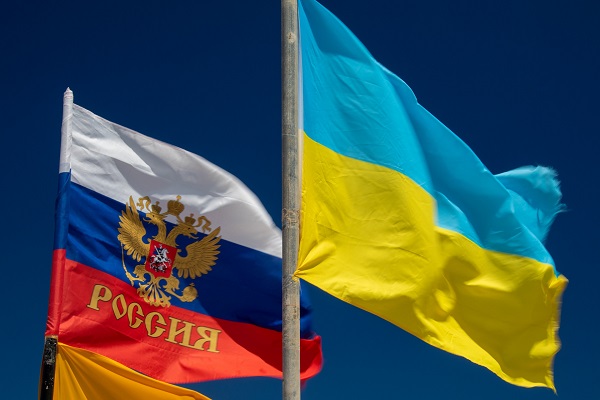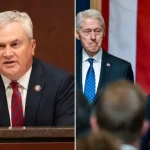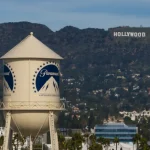
–>
February 13, 2023
All wars are like car accidents, and all car accidents have causes. Trouble is, conflicting testimony will often produce different explanations of the cause.
‘); googletag.cmd.push(function () { googletag.display(‘div-gpt-ad-1609268089992-0’); }); }
The conventional view on the Russo-Ukraine War holds that Russia’s invasion constitutes a grave act of injustice, amounting to an open-and-shut case of unprovoked aggression. War guilt rests solely on the shoulders of Russian president Vladimir Putin. “One man chose this war,” American secretary of state Antony Blinken has said, “and one man can end it,” echoing a widely shared view by foreign policy elites on both sides of the Atlantic. Variations of this version would add that Putin’s past words and deeds show that he had long planned for war, that he is bent on conquest, and that he wants to recreate the Russian Empire. In any case, the key point in all this is that the war stemmed from an act of Putin’s will, nothing more.
The anti-war view is in the minority; it has no standing among foreign policy elites. Generally, the war critics see two principal chains of events leading up to the conflict. The primary one is the prospect of Ukraine joining the NATO alliance and Russia’s well publicized record of warnings against that development. Over the years, Russia had repeatedly signaled that it would consider such a move a threat to its security. A full diplomatic history of the run-up to the war — of who said what to whom and when — lies in the future, but enough is now known to say that the first move was taken by NATO in 2008, when it formally invited Ukraine to become a member of the alliance. War critics say the U.S. had the influence to change this policy but chose not to do so. To them, the U.S. is the one who started the quarrel.
The other thread is about the destabilizing changes that took place in Ukraine after a stridently anti-Russia nationalist movement took power there in 2014. That event sparked a civil war between the government and the Russian-speaking population in the eastern, or Donbas, part of the country. Russia provided the rebels with military support, and the war in the Donbas settled into years of artillery duels, causing an estimated fourteen thousand civilian deaths. The record does not show that the government sought to win the hearts and minds of the pro-Russia separatists; its tone toward them was one of mocking hostility. The war critics make a great fuss over the fact that the Western media has largely ignored this piece of the story. Meanwhile, NATO boosted military aid to Ukraine, and, with the passage of time, the country gradually became a de facto NATO ally. The Kremlin looked upon these developments with alarm.
‘); googletag.cmd.push(function () { googletag.display(‘div-gpt-ad-1609270365559-0’); }); }
It is pointless arguing whether withdrawing NATO’s invitation to Ukraine or resolving the civil war could have avoided war, for conjectures like these are debatable, but it is fair to say that the failure to perform on them — keeping the invitation active and allowing the civil war to fester — contributed much to the current catastrophe. These failures amounted to the piling up of dry kindling, which awaited an agent for ignition: Vladimir Putin chose war. The conventional view would say he was aiming for war all along and was looking for the pretext to start one. The war critics say he was not looking for war so much as he had concluded that a collision was inevitable. In either case, no party in the West was willing or able to accommodate Russia’s security “asks.” No negotiated solutions materialized.
This debate over war origins exists on two levels. There is first of all the debate over the facts, with the conventional view emphasizing Putin’s personal culpability as well as the legal and ethical aspects of Russia’s invasion, while the war critics place Putin in a secondary role and emphasize the security environment faced by the Kremlin. On another level, there is a kind of meta-debate, or a dispute over the debate itself. The conventional view holds that there is a simple and final explanation for the war, and one need not do discovery much beyond the Kremlin walls to find it. The war critics, on the other hand, see large areas open to doubt and questioning and assert that the matter of war origins is not settled.
An analogy to the origins of two world wars is apt.
There was a great debate after the First World War about its origins and causes. Volumes have been written on the topic. Some books look at the various crises that broke over Europe in the ten years before the guns of August, while others trace the war’s origins deeper into the nineteenth century. A reappraisal of the events emerged, along with a feeling that responsibility for the war did not rest solely on Germany, but was distributed among the other combatants.
Nothing like this exists about the Second World War. The consensus view has long held fast: the war stemmed from an act of Adolf Hitler’s will, nothing more. Today’s defenders of U.S. and NATO policy in Ukraine are like this. Their explanation of the war does not admit of shared responsibility. The anti-war camp, on the other hand, takes the First World War as its explanatory model.
The conventional view also keeps to a restricted understanding of the idea of “aggression.” To those who hold that view, Russia is the aggressor because it attacked Ukraine, and not the other way around. But the aggressor is not always the one who attacks; he can also be the one who starts the quarrel. The anti-war camp insists that the United States started the quarrel and thus either shares or bears responsibility for the war.
‘); googletag.cmd.push(function () { googletag.display(‘div-gpt-ad-1609268078422-0’); }); } if (publir_show_ads) { document.write(“
In ancient Greece, a great war was fought between the cities of Athens and Sparta over which was to lead the Greek world. For generations prior to the war, Athens had become a formidable naval power, acquired great wealth, and collected a following of other Greek cities, which looked to it for commercial and cultural stimulation. Sparta looked upon these developments with fear and saw the power balance shift against it. After much delay, Sparta declared war on Athens and attacked. But Sparta was not the aggressor, according to the Greek historian who chronicled the events. Thucydides took part in the war as an admiral in the Athenian fleet, but he fingered his own country for war guilt. The real cause, he said, “was kept out of sight.” It was “the growth of the power of Athens, and the alarm which this inspired” in Sparta. Here is the familiar combination of the relentless expansion of the one power and the fear it provokes in another. Sparta’s attack was not unforeseen; it was the result of the accumulation of unresolved tension.
It is tempting to find in this an allegory for the Russo-Ukraine War, with America cast as democratic Athens against Russia’s Sparta. After 27 years of fighting, the Peloponnesian War came to an end in 404 B.C. Sparta won.
James Soriano is a retired Foreign Service officer. He has previously written for the American Thinker on monetary affairs.

Image via Public Domain Pictures.
<!– if(page_width_onload <= 479) { document.write("
“); googletag.cmd.push(function() { googletag.display(‘div-gpt-ad-1345489840937-4’); }); } –> If you experience technical problems, please write to [email protected]
FOLLOW US ON
<!–
–>
<!– _qoptions={ qacct:”p-9bKF-NgTuSFM6″ }; ![]() –> <!—-> <!– var addthis_share = { email_template: “new_template” } –>
–> <!—-> <!– var addthis_share = { email_template: “new_template” } –>






